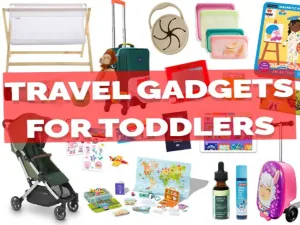When it comes to domestic travel safety, follow these tips for a secure and worry-free journey.
Essential Travel Documents
When it comes to traveling domestically, one of the key factors to consider is ensuring you have all the necessary identification and travel documents. These documents not only validate your identity but also assist you in navigating through various checkpoints and accommodations with ease.
Carry All Necessary Identification And Travel Documents
Before embarking on your trip, it is crucial to compile all the required identification and travel documents. Make sure to keep these handy throughout your journey, as you may be asked to present them at various points, such as airports, hotels, or even while accessing certain attractions or activities.
Here is a list of some essential documents you should carry:
- A valid government-issued photo identification card, such as a driver’s license, passport, or state identification card.
- If you are traveling internationally, a valid passport is a must. Ensure it has not expired and has sufficient validity for your entire trip.
- Your flight or train tickets with confirmed reservations.
- Hotel reservations or accommodation details, including confirmation numbers and addresses.
- If you have pre-booked any activities or tours, carry the necessary vouchers or tickets.
- Health insurance cards or documentation, if applicable.
- If you have any special medical conditions or allergies, carry relevant medical cards or documentation as well.
By being prepared and having these documents readily available, you can streamline your journey and avoid any unnecessary delays or complications.
Keep Digital Copies And Backups Of Important Documents
In addition to carrying physical copies of your essential travel documents, it is wise to keep digital copies and backups as well. This approach ensures that even if you misplace or lose your physical documents, you still have access to crucial information.
Here’s how you can go about keeping digital copies:
- Scan or take clear photographs of all your identification and travel documents.
- Save these digital copies on your smartphone, tablet, or computer.
- You can also store them securely in a cloud storage service, such as Google Drive or Dropbox.
- Consider encrypting the files containing sensitive information for an additional layer of security.
Having digital copies allows you to quickly retrieve any necessary information, such as passport details or reservation numbers, even if you misplace the physical documents. Furthermore, it provides an extra level of assurance and peace of mind throughout your travels.
Remember to always keep your physical and digital copies separate to avoid losing both simultaneously. Additionally, make sure that your digital devices are protected through passcodes or biometric authentication to safeguard your sensitive files.
By adhering to these essential travel document tips, you’ll be equipped to handle any unexpected situations that may arise during your journey. With your identification and travel documents securely in place, you can focus on creating beautiful memories and enjoying your domestic travel experience to the fullest.
Packing And Luggage Safety
When it comes to domestic travel, ensuring the safety of your packing and luggage is essential. Taking precautions and being proactive can help protect your belongings and give you peace of mind throughout your journey. In this article, we will discuss some important tips and practices to ensure packing and luggage safety during domestic travel.
Secure Your Luggage With Sturdy Locks
One of the first steps to ensure the safety of your luggage is to secure it with sturdy locks. This will help deter potential thieves from accessing your belongings. Invest in high-quality locks that are difficult to break. Look for locks that are TSA-approved, as they can be opened by airport security if needed for inspection. By using these locks, you can minimize the risk of unauthorized access to your luggage.
Pack Essential Items In Your Carry-on Bag
It’s always a good idea to pack essential items in your carry-on bag. This is especially important in case your checked luggage gets lost or delayed during the journey. Your carry-on bag should include all the necessities such as medications, electronics, important documents, and a change of clothes. By keeping these essential items with you, you can ensure that they are securely within reach at all times.
Personal Safety Measures
When it comes to traveling domestically, ensuring personal safety should be a top priority. By being aware of your surroundings and taking necessary precautions, you can greatly reduce the risk of any untoward incidents. In this section, we will discuss some practical tips that can help you stay safe during your domestic travels.
Stay Aware Of Your Surroundings At All Times
Staying alert and being aware of your surroundings is crucial to personal safety while traveling. By being vigilant, you can quickly identify any potential risks or dangers. Here are some simple yet effective ways to stay aware:
- Keep your head up, avoid looking down at your phone or map constantly, as this can make you an easy target for theft or other crimes.
- Walk with confidence and purpose, maintaining a steady pace. This will give the impression that you are aware and deter potential wrongdoers.
- Pay attention to the people around you, especially in crowded areas. Trust your instincts and move away from any situation or person that makes you feel uncomfortable.
- Observe the behavior of those around you. If someone exhibits suspicious or aggressive behavior, try to distance yourself or seek assistance from authorities.
- If you are exploring a new area, research its safety reputation beforehand and avoid areas known for high levels of crime.
Avoid Displaying Valuable Items In Public
One of the key ways to prevent theft or robbery is to avoid flaunting your valuable items in public. By keeping a low profile, you reduce the chances of becoming a target. Here are some steps you can take to protect your belongings:
- Avoid wearing excessive jewelry or valuable accessories that may draw attention to yourself.
- Avoid carrying large sums of cash. Instead, use cards or traveler’s cheques for your transactions.
- If you must carry expensive equipment such as cameras or laptops, keep them concealed in a backpack or bag rather than displaying them openly.
- When leaving your accommodation, use the hotel safe to store your valuable items such as passports, cash, and jewelry.
By following these personal safety measures, you can greatly enhance your safety while traveling domestically. Remember, prevention is always better than cure, so it’s essential to stay proactive and cautious throughout your journey.
Transportation Safety
Stay safe during your domestic travels with these essential transportation safety tips. Protect yourself and your loved ones by following these guidelines for a worry-free journey.
Research And Choose Reputable Transportation Options
When it comes to domestic travel, one of the most crucial aspects of ensuring your safety is choosing reliable transportation options. Proper research goes a long way in finding reputable and trusted modes of travel.
Start by exploring the different transportation options available at your destination. Whether it’s flights, trains, buses, or rental cars, each mode of transportation has its own set of safety standards and regulations. Look for well-known and established airlines, train companies, or bus services with a good safety track record.
Avoid dealing with unknown and unregistered operators or taxi services, especially those that do not have proper licenses or certifications. Remember, your safety should always be a top priority, so it’s worth spending a little extra time to choose reliable transportation options.
Follow Safety Guidelines While Using Public Transportation
Using public transportation can be a convenient and cost-effective way to get around during your domestic travels. However, it’s essential to follow safety guidelines to ensure a secure and trouble-free journey.
Here are a few safety tips to keep in mind when using public transportation:
- Be aware of your surroundings: Stay alert and cautious of your surroundings at all times. Be mindful of the people around you and any suspicious activities.
- Keep an eye on your belongings: Ensure that your personal belongings, such as bags, wallets, and electronic devices, are secured at all times. Consider using cross-body bags or backpacks with hidden compartments to deter theft.
- Use well-lit and populated stops: When waiting for buses, trains, or trams, choose stops that are well-lit and populated. Avoid isolated areas, especially at night.
- Beware of pickpockets: Pickpocketing can be a common issue in crowded public transportation. Keep your valuables in front pockets or use a money belt under your clothing to minimize the risk.
- Stay behind safety barriers: When boarding trains or buses, wait behind the safety barriers until the vehicle comes to a complete stop. This helps prevent accidents and ensures your safety.
- Follow emergency protocols: Familiarize yourself with the emergency protocols of the public transportation system you are using. Locate emergency exits, alarms, and any safety instructions provided.
By following these safety guidelines, you can ensure a safer and more enjoyable experience while using public transportation during your domestic travels.
Accommodation Safety Tips
When it comes to domestic travel, ensuring the safety of your accommodation is of utmost importance. By taking a few simple precautions, you can have peace of mind and enjoy your stay without any worries. Here are some essential accommodation safety tips that you should keep in mind.
Research And Book Accommodations In Safe Areas
Before booking your accommodation, it is crucial to do some research and choose a location that is known for its safety. Look for accommodations in well-populated areas with lower crime rates. Check online travel forums, read reviews, and consult travel blogs to get insights from other travelers who have stayed in the area.
If you are unfamiliar with the destination, consider identifying the safest neighborhoods or districts. Look for areas that have good lighting, well-maintained infrastructure, and a visible security presence. By choosing a safe area, you decrease the likelihood of encountering any security issues during your stay.
Ensure The Security Measures Of The Accommodation
Once you have selected your desired accommodation, it is essential to ensure that it provides adequate security measures to keep you safe. Look for the following safety features and facilities:
- 24/7 security personnel or surveillance cameras in common areas to deter criminal activities.
- An access control system such as key cards, passcodes, or biometric identification for restricted entry into the property.
- Well-maintained locks on doors and windows to prevent unauthorized access.
- Secure parking facilities, especially if you are traveling with a car.
- Emergency contact numbers readily available in case of any issues or emergencies.
Additionally, consider reaching out to the property management or owner directly to inquire about their security measures and ask any specific questions you may have.
By adhering to these accommodation safety tips, you can ensure a secure and pleasant stay during your domestic travel. Prioritize your safety, and make it a priority to choose a well-researched and secure accommodation option. Remember, taking proactive steps towards safety allows you to have a worry-free experience and fully enjoy your trip.
Frequently Asked Questions On Domestic Travel Safety Tips
What Are The Safety Tips For Traveling By Plane?
Be prepared with these top plane safety tips:
- Pack smart, leaving dangerous items at home.
- Follow airport security procedures, like removing liquids and electronics.
- Use caution when walking on the plane to avoid accidents.
- Listen to the crew’s safety instructions and fasten your seatbelt.
- Keep important documents and valuables secure during the flight.
What Are The Do’s And Don’ts Of Travelling?
Dos:
- Plan your trip in advance for better organization.
- Pack light to ensure convenience while traveling.
- Respect local customs and be culturally sensitive.
- Stay hydrated and take care of your health during the journey.
- Keep an open mind and embrace new experiences.
Don’ts:
- Don’t forget to take necessary travel documents.
- Avoid overpacking to avoid unnecessary burden.
- Don’t disrespect the local culture or customs.
- Avoid consuming tap water in unfamiliar destinations.
- Don’t be closed-minded, be open to trying new things.
How Do You Keep Yourself Safe When You Are Alone At Home?
To stay safe when alone at home, lock all doors and windows securely. Keep emergency contact numbers handy, and install a security system if possible. Be cautious about opening the door for strangers and avoid sharing personal information online. Trust your instincts and report any suspicious activity to the authorities.
How Can A Woman Travel Safely?
A woman can travel safely by following these steps: Choose well-lit and busy areas. Stay alert and trust your instincts. Avoid displaying wealth. Inform someone about your itinerary. Research your destination’s safety measures.
Conclusion
Traveling domestically can be a thrilling adventure, but it’s crucial to prioritize safety along the way. By implementing these simple yet effective tips, such as being aware of your surroundings, securing your belongings, and staying connected to loved ones, you can minimize risks and enjoy a worry-free trip.
Remember, safety should always be a top priority, so don’t hesitate to take necessary precautions to ensure a safe and enjoyable travel experience.
Also Read:











Can you be more specific about the content of your article? After reading it, I still have some doubts. Hope you can help me.